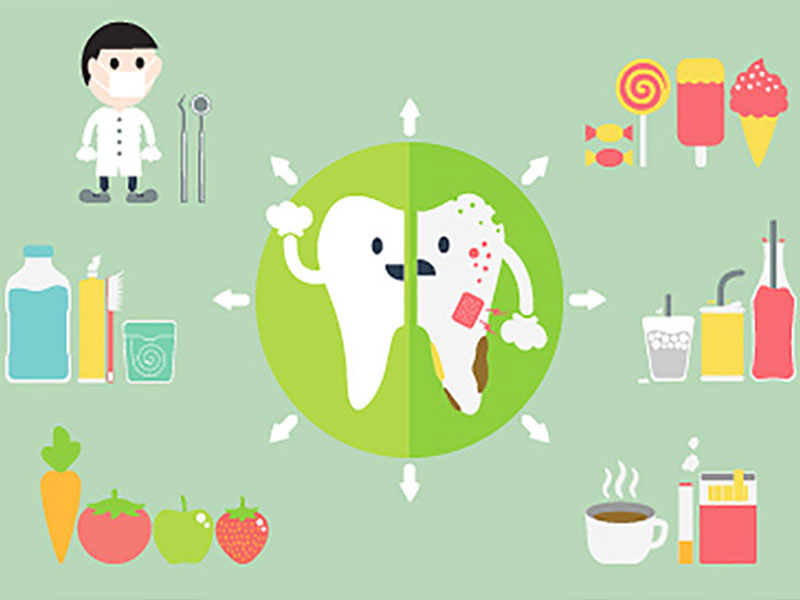
Maintaining optimal oral health is not just about having a bright smile; it plays a crucial role in our overall well-being. One of the most severe consequences of poor oral hygiene is oral cancer, a condition that can be life-threatening if not detected early. In this comprehensive guide, we will explore healthy habits for oral health that can significantly reduce the risk of developing oral cancer. From dietary choices to regular dental check-ups, we will cover every aspect of preventive care.
Understanding Oral Cancer
Oral cancer refers to the uncontrollable growth of cells in the mouth, including the lips, tongue, cheeks, and throat. This type of cancer can manifest as sores, lumps, or red and white patches in the oral cavity. Early detection is critical, as the chances of successful treatment are higher when the cancer is diagnosed in its initial stages.
Adopt a Healthy Diet Rich in Antioxidants
One of the most effective ways to prevent oral cancer is by adopting a diet rich in antioxidants. Antioxidants are compounds that neutralize harmful free radicals in the body, which can cause cellular damage leading to cancer. Incorporate a variety of colorful fruits and vegetables into your diet, such as:
- Berries: Strawberries, blueberries, and raspberries are packed with vitamins and antioxidants that protect your cells from damage.
- Leafy Greens: Spinach, kale, and broccoli are excellent sources of vitamins A, C, and E, which have been linked to a lower risk of cancer.
- Citrus Fruits: Oranges, lemons, and grapefruits contain high levels of vitamin C, which helps in repairing tissues and boosting the immune system.
Additionally, reducing the consumption of processed and sugary foods can further protect your oral health. Processed foods often contain preservatives and chemicals that may contribute to the development of cancerous cells.
Avoid Tobacco and Limit Alcohol Consumption
Tobacco use is one of the leading causes of oral cancer. Whether smoked or chewed, tobacco exposes the cells in the mouth to carcinogens that can lead to the development of cancerous tumors. Quitting smoking and avoiding smokeless tobacco products is essential for maintaining oral health.
Tobacco use is one of the leading causes of oral cancer. Whether smoked or chewed, tobacco exposes the cells in the mouth to carcinogens that can lead to the development of cancerous tumors. Quitting smoking and avoiding smokeless tobacco products is essential for maintaining oral health.
Practice Good Oral Hygiene
Good oral hygiene is the cornerstone of oral health. Regular brushing, flossing, and dental check-ups can help prevent not only cavities and gum disease but also more severe conditions like oral cancer. Here are some key practices to follow:
- Brush Twice Daily: Use fluoride toothpaste and brush for at least two minutes, focusing on all surfaces of your teeth and your tongue.
- Floss Daily: Flossing removes plaque and food particles from between your teeth, areas that your toothbrush cannot reach.
- Use an Antimicrobial Mouthwash: This can help reduce the number of bacteria in your mouth, lowering the risk of infections that could potentially lead to cancerous growths.
Regular Dental Check-Ups
Regular visits to the dentist are crucial for early detection of oral cancer. Your dentist can perform an oral cancer screening during your routine check-up, looking for any signs of abnormal tissue or growths. Early detection significantly improves the chances of successful treatment, making these visits an essential part of your oral health routine.
Protect Your Lips from Sun Exposure
Just like skin cancer, oral cancer can be caused by excessive exposure to the sun. The lips, being more sensitive than other parts of the body, are particularly vulnerable. To protect your lips:
- Use Lip Balm with SPF: Choose a lip balm that contains SPF 30 or higher, and reapply it regularly, especially if you spend extended periods outdoors.
- Wear a Wide-Brimmed Hat: A hat can provide additional shade and protect your lips and face from harmful UV rays.
Stay Hydrated
Dry mouth, or xerostomia, can increase the risk of developing oral cancer. Saliva plays a crucial role in maintaining oral health by neutralizing acids, washing away food particles, and providing disease-fighting substances throughout the mouth. Drinking plenty of water throughout the day can help keep your mouth moist and reduce the risk of oral health issues.
Know the Signs and Symptoms of Oral Cancer
Being aware of the signs and symptoms of oral cancer is vital for early detection. Some of the common symptoms include:
- Persistent Sores: Sores in the mouth or on the lips that do not heal within two weeks.
- Lumps or Thickening: Any lump or thickened area in the mouth, neck, or throat.
- Red or White Patches: Unexplained red or white patches on the gums, tongue, or lining of the mouth.
- Difficulty Swallowing: Pain or difficulty when swallowing, speaking, or moving the jaw or tongue.
- Numbness: Unexplained numbness or pain in any area of the mouth or neck.
If you experience any of these symptoms, it is crucial to consult a healthcare professional immediately.
Reduce Stress and Practice Mindful Living
Chronic stress can weaken your immune system, making it harder for your body to fight off infections and diseases, including oral cancer. Incorporating stress-reducing practices such as meditation, yoga, and regular exercise into your daily routine can boost your overall health and resilience.
The Importance of Early Detection
Early detection of oral cancer can make a significant difference in the outcome of treatment. Regular self-examinations, along with professional screenings, are essential. If you notice any unusual changes in your mouth or throat, do not hesitate to seek medical advice.
Conclusion
Preventing oral cancer involves a multifaceted approach that includes a healthy diet, good oral hygiene, regular dental check-ups, and lifestyle choices that minimize risk factors such as tobacco and alcohol use. By adopting these healthy habits, you can significantly reduce your risk of developing this serious condition and maintain optimal oral health.